
7 Things No One Tells You About Being Homeless
Glob
Most people think of homelessness in terms of Steve Buscemi's character from Big Daddy -- creepy, potentially crazy people reaping the benefits of a lifetime of bad decisions. Well, in the summer and fall of 2009 in a little town in Montana, I was "lucky" enough to peer through a window at the world of chronic homelessness while experiencing some temporary homelessness of my own. Here's what I hope you never find out ...
(SCROLL DOWN)
*
*
*
*
*
*
*
*
*
Quick question: If you came home from work one day and found that your apartment was gone -- like if it got sucked into a portrait like the house at the end of Poltergeist -- where would you go? If you say you'd stay with family, what if you had just moved to a new state, away from everyone? If you say you'd crash at a friend's house, what if the only people you knew were your roommates in said apartment? If your answer is you'd go to a hotel, that might be fine for a night, but remember that the rates are 10 times what you were paying in rent, so good luck saving the cash you'll need to put down a deposit on a new apartment.
"Of course we accept cigarette butts and burrito receipts as legal tender."
Well, I didn't have an answer when the above happened to me. After three months in a new town, it turned out my roommate's rent checks had been bouncing, and my landlord never bothered to notify us until he showed up with eviction papers. I worked a job that kept me away for a week at a time, so one day I just came home to find all my possessions boxed up in the garage. It was as simple as that -- for the first time in my life, the sun went down and I had no idea where I was going to sleep. And it was the same for the next night, and the next week, and the next month ...
I had moved to Montana after finishing up my worthless liberal arts degree. I moved in with some cool folks my age and started a six-month contract job. It was an AmeriCorps position with weeklong shifts working in the wilderness, building hiking trails and whatnot, followed by a week off to spend in town. I was halfway through my contract when I found myself homeless. There are people with worse stories, of course -- many homeless are mentally ill, or maybe their parents kicked them out of the house for being gay when they were teenagers -- the point is, the line between where you are now and sleeping in your car is much, much thinner than you think.
Sometimes it isn't so much a "line" as "peeing in your boss's coffee."
In my case, I could've been more wary of my housemates and had a better backup plan in place. But as I pointed out in the opening paragraph, very few of us do. You've had a home your whole life; you just take it for granted. Besides, it wasn't like I was unemployed, right? But as I found out ...
So I didn't have a home -- but I had a car, so I had a place to sleep. And since I wasn't paying rent, I was pocketing the difference, which meant I could save up for a new place, right? Hell, it's so easy that you have to wonder why people bother being homeless at all!
"Have you considered a Prius?"
Yeah, here's the second big surprise waiting for you out on the street: how incredibly expensive homelessness is. See, living on the street wouldn't be that big of a deal if you were, say, a robot. But as a functioning organism living in a society, you suddenly realize there are all of these basic needs you need to MacGyver solutions to on the fly.
First up: the ability to prepare food. I had to buy a camp stove and a mess kit, which will generally run you about $150 for stuff you can be reasonably sure won't break, plus you have to continuously pay for the fuel. I didn't want to get in trouble for sleeping in town, so I drove out into the woods to sleep, which meant I had to keep buying gasoline. Even people who work with their hands need to clean up and shower, so I spent the occasional night at a youth hostel or cheap motel ($25 to $50 a night) just to get access to running water and a mirror. Then there are all of the little complications that come from, for instance, not owning a refrigerator to store food in -- and every little thing costs you.
Buying cheese by the wheel is a mistake I only made four or five times.
I could have gone without these things, but then that would have meant sacrificing showers, privacy, and hot food, despite having a job.
And I was fortunate because it was summertime -- winter camping in Montana would have made all of this far more complicated and much more expensive (it costs money to keep warm, no matter how you do it, and the odds of accidentally setting yourself on fire somehow rise exponentially). Still, I had to start buying rooms at the hostel or motel more frequently as fall set in and the weather got colder. I was working full time and taking care of no one other than myself, and I still couldn't afford to drag myself out of homelessness.
Forget making it rain -- I could barely make condensation.
So maybe it's not that surprising that 30 percent of homeless people are employed and a significant number of people in shelters have full-time jobs. While they're making enough to scrape by, the expense of homelessness is enough to keep permanent or long-term housing out of reach.
Spike Mafford/Photodisc/Getty Images
"But wait," you're sputtering at my article through your tears of compassion. "The government! Aren't there all sorts of programs to help people in that situation? Didn't I hear a pundit say that people on welfare drive Escalades?" Shockingly, being homeless actually doesn't qualify you for the government gravy train we've heard so much about, unless you take the metaphor literally, in that a train full of gravy also would not do much to alleviate an insecure housing situation.
Not picutres- a Coleman Stove
Housing assistance exists, but it's limited in scope and scale -- and to give you a better idea of how the Department of Housing and Urban Development operates, rich neighborhoods are literally getting twice as many housing subsidy dollars as the poor ones, and 12 million Americans are spending more than half of their salary on housing.
But what about food stamps? Well, the problem with EBT -- the food stamps card -- is that, with little exception, you can only buy stuff that needs to be prepared at home, and if you're homeless, that means it's kind of like one of those cruelly ironic wishes granted by a genie. And unless you're in California, Arizona, Florida, or Michigan, you can't use food stamps to buy food at restaurants.
Sorry, kid. The Sizzler ain't for the likes of you.
So if you want to eat more junk food, homelessness is great! If you don't want to die of kidney failure, though, your options are more limited, because crackers and cheese just don't keep a man going -- especially when you have to be ready for a week of physical labor.
So, I used the EBT to load up on food that I needed to cook, which meant I was using my cook stove more, which meant more money spent on fuel. Plus, you're not allowed to start fires in town, obviously, so cooking often meant yet another car trip, which meant more driving and more money spent on gas. In general, it just gave me an expensive commute every day. The food stamps were helpful, obviously, in that I have no idea how I would've survived without them. But like everything else, they were severely hindered by the realities of my situation.
There's much less smiling on the eighth night of this.
All right, so what about homeless shelters? Well ...
I never stayed in a shelter. In fact, it never occurred to me to do so until I started working on this article. That turned out to be OK, because as much help as they have been to some, a lot of the time the shelter is worse for people than just staying on the streets. There is a reason why so many prefer to sleep on park benches.
The lumbar support is unbelievable.
First off, shelters have really strict rules and schedules, which makes perfect sense: They have to maintain organization, and their frustratingly limited resources means that it's really easy for food to get misplaced or people to be taken advantage of. The people who work there are doing amazing things with very little to work with ... but it also means that it can be nearly impossible for the people staying there to, for example, find a job.
Many shelters are so overcrowded that people staying there have to arrive at 4:30 in the afternoon to even have a chance of getting a bed that night, which means cutting out of work early, which means risking losing your job, which exacerbates the problem you're trying to escape. There's also evidence that the stress of living in a homeless shelter makes you more prone to violence than living on the street.
Close proximity to a Home Depot doesn't help.
And that's if you can even find a shelter -- Los Angeles is the homeless capital of America, and one-fifth of its homeless are without any kind of shelter at all.
If Los Angeles had seasons, this would be an even worse problem.
But honestly? After enough time had gone by, I started realizing that the only thing harder than finding a place to sleep was finding a place to be awake. What do I mean by that? Well ...
What surprised me the most about being homeless was just how much time I had on my hands. Remember: no TV, no Internet, no video games, no inviting people over to hang out (tell you what, just make a list of how many of your leisure time activities require having a place to live). And at least I had a job -- but even then, it was one that had me working in the backcountry for a week at a time (Great! Meals and a place to stay for a whole week!) with a week off when I got back ("Hey, I just met you, and this is crazy, but ... , dude, it's really cold out and I'm covered in a week's worth of trail grime, let me shower at your place, maybe?").
You'd let her do it.
So ... what do you do with yourself? Me, I went to the library, I visited the park, I tried going hiking, I spent time at friends' houses -- but each time, I ran into problems. I was new in a small mountain town and didn't know many people all that well. As for the parks and libraries, keep in mind that I looked like a tramp from spending so much time in the woods and having limited access to laundry and showers. Want to guess how I wound up spending that free time? Here's a hint: An estimated 50 percent of homeless people are addicts.
Yep, having nothing to do and nowhere to go got so stressful that I ended up finding a good source of LSD , and this became my last resort for filling time. The thought process was basically "Yay, I have an activity for the next 12 hours! I'm going to manage an acid trip! I feel so productive!"
Fifty-two of these is basically a year's employment!
And here's where I'll lose a lot of readers (think about the last time you considered giving money to a beggar, only to have a friend say, "He'll just use it to buy drugs!"), but I've found that there's a misconception here. The assumption is that all of these people are homeless because they're addicts -- they blew their rent money on drugs, right? But that's not always the case -- what often comes first is having nothing else to do (an especially big problem for people staying in shelters), and the boredom literally drives them crazy. I finally understood, in a very immediate way, why people who've been living on the street for a long time tend to be addicts: Drugs not only get you high, but also give you a schedule and a routine.
And once again we see how a short-term problem can turn into a cycle that threatens to suck the rest of your life into it.
Much like this cardboard tube has sucked up a homeless man.
Let's acknowledge what many of you have already noticed: Mine was far from the worst-case homeless scenario. Aside from the obvious (I had no disabilities or children to look after), being homeless made me aware of how much I had going for me: stuff like coming from a stable home, having a college education, knowing how to clean up after myself, and having a keen understanding of social cues -- all of that ended up being absolutely essential.
As was the car.
Think about it: To spend a night on someone's couch and use their shower without paying 50 bucks for a motel, I had to convince people that I wouldn't steal from them, make a mess, creep out their friends, or just wear out my welcome in general. For example, I became very grateful that I'd learned how to cook -- people love having someone cook up a gourmet meal for them. Hell, just the fact that I'm a well-spoken white man with all my teeth makes all the difference when that's the face of a person who has shown up on your doorstep asking for food.
I have come to find out that people in my category -- those who live in cars and couch-surf their way through homelessness -- have been given a name: the "hidden homeless." These folks don't look like the "stereotypical homeless guy" with the crusty beard and bag of liquor. They're making the lifestyle work by being clever and funny and cool to be around, with the added bonus of us never noticing that they exist.
Someone else's home doesn't count.
But here's the thing: The more time you spend homeless, the less likely you are to be a charming little rascal. It's hard to keep a smile on your face when you know you're just one quirk of fate away from sleeping in the dirt. It's hard to keep looking and smelling presentable when your hygiene and haircut budget is being spent elsewhere. Everything starts working against you, and you wonder how anyone ever makes it out. But they do ...
The word "homeless" typically conjures forth a particular image -- usually a man, usually bearded, dirty, and mentally ill. This is not the typical homeless person. About three-quarters of them are homeless for less than two months, using shelters only once or twice the entire time. Only 16 percent of those without shelter are chronically homeless -- the rest are just riding out a tough time in their life, like I was. "Homeless" doesn't necessarily mean "worn out," either: Almost 39 percent of homeless people are under 18, and almost half of those are under age 5.
This kid barely weighs anything, why can't he pull himself up by his bootstraps?
Obviously, this completely blows apart any argument people have that relies on homeless people being lazy or making communities look bad. These aren't roving bands of shiftless, alcoholic drug addicts begging for change on the street; they're normal people who hit one or two snags while going through a life just like anyone else's. In the case of the kids (which, remember, are almost half the population), they're normal kids whose parents hit snags -- they literally had no other choice or options.
Ditto for the 100 million homeless children worldwide.
As I said, compared to what most people go through, my experience with homelessness was pretty cushy, but I was still only able to escape it through pure luck by taking a risk and moving to Seattle when my job ended -- and I've been housed ever since. For a lot of people, they never turn that corner, and they spend the rest of their life paying for one mistake they made, or a mistake someone else made, or random chance.
So, yes, I was one of the lucky ones.
William Bonnie lives in Seattle with his fixie bike, Blue Dream. JF Sargent is a Workshop Moderator and Dick Joke Journalist for Cracked.
#7. It Doesn't Take Much to Wind Up Homeless
.jpg) Jupiterimages/Stockbyte/Getty Images
Jupiterimages/Stockbyte/Getty Images George Doyle/Stockbyte/Getty Images
George Doyle/Stockbyte/Getty Images Jupiterimages/liquidlibrary/Getty Images
Jupiterimages/liquidlibrary/Getty Images
#6. Having a Job Won't Save You
 Comstock Images/Stockbyte/Getty Images
Comstock Images/Stockbyte/Getty Images Hemera Technologies/AbleStock.com
Hemera Technologies/AbleStock.com Jupiterimages/Photos.com/Getty Images
Jupiterimages/Photos.com/Getty Images Digital Vision./Photodisc/Getty Images
Digital Vision./Photodisc/Getty Images
#5. Government Benefits Aren't as Much Help as You Think
.jpg)
.jpg)
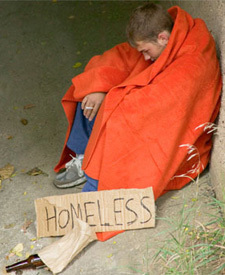 George Doyle/Stockbyte/Getty Images
George Doyle/Stockbyte/Getty Images  Photodisc/Photodisc/Getty Images
Photodisc/Photodisc/Getty Images
#4. Shelters Are a Band-Aid
 Hemera Technologies/PhotoObjects.net
Hemera Technologies/PhotoObjects.net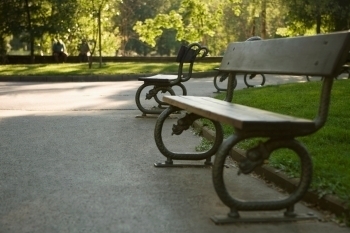 Medioimages/Photodisc/Photodisc/Getty Images
Medioimages/Photodisc/Photodisc/Getty Images BananaStock/BananaStock/Getty Images
BananaStock/BananaStock/Getty Images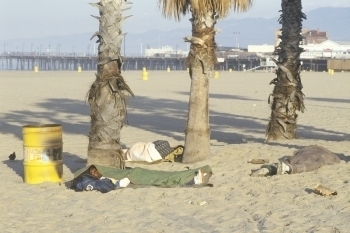 Visions of America / UIG / Getty
Visions of America / UIG / Getty
#3. Your Free Time Becomes Your Enemy
 Stockbyte/Stockbyte/Getty Images
Stockbyte/Stockbyte/Getty Images Andreas Rentz / Getty
Andreas Rentz / Getty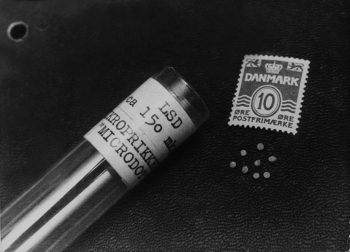 Keystone-France / Gamma-Keystone / Getty
Keystone-France / Gamma-Keystone / Getty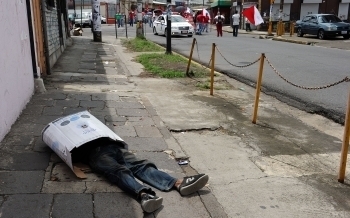 Yuri Cortez / AFP / Getty
Yuri Cortez / AFP / Getty
#2. Your Biggest Asset Is Your Charm
 Digital Vision/Photodisc/Getty Images
Digital Vision/Photodisc/Getty Images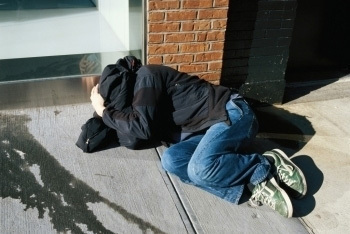 David De Lossy/Photodisc/Getty Images
David De Lossy/Photodisc/Getty Images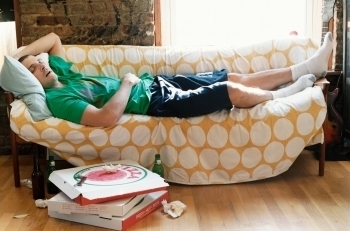 Digital Vision./Photodisc/Getty Images
Digital Vision./Photodisc/Getty Images
#1. Most Homeless Are Young, and They're Only Homeless for a Couple of Months
 George Doyle/Stockbyte/Getty Images
George Doyle/Stockbyte/Getty Images 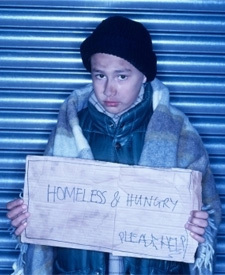 George Doyle/Stockbyte/Getty Images
George Doyle/Stockbyte/Getty Images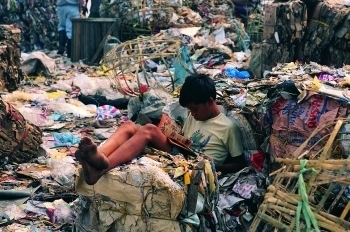 Stockbyte/Stockbyte/Getty Images
Stockbyte/Stockbyte/Getty Images
